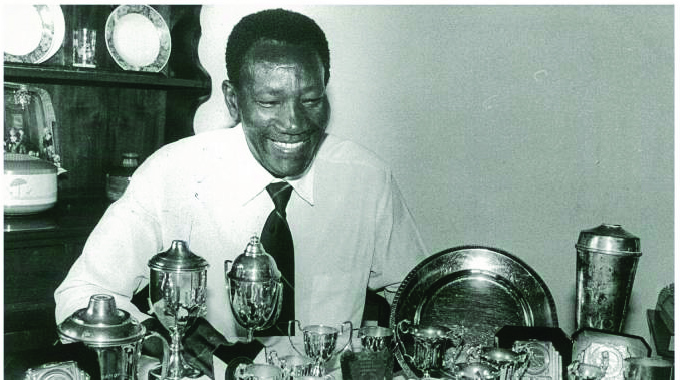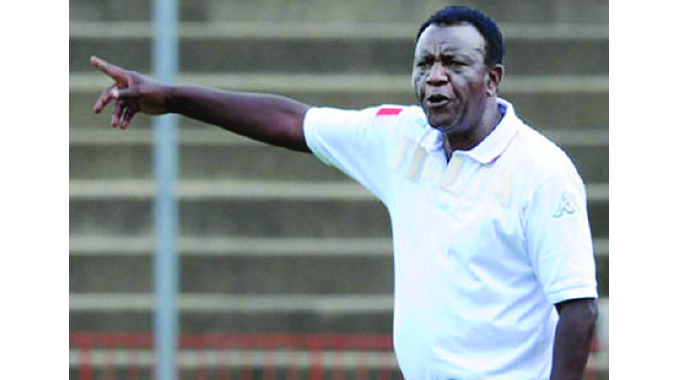
The Sunday News

Lovemore Dube
THE attainment of Independence in 1980 ushered a new era for Zimbabwe sportspersons who had been excluded from international sport for almost the entire decade of the 1970s because of the Rhodesian government’s racist policies.
Blacks in every walk of life were reduced to fourth-class citizens, coloureds third, Indians second and whites first.
Independence declassified citizens of this country. A new era had dawned where it became equal opportunities for everyone including in sport. Sport took its rightful place as a unifier of the new Zimbabwe brought about by the blood and sweat of the nation’s heroes.
Sportspersons of this country had last participated in the 1964 Tokyo Olympics where Mathias Kanda and Rabson Mlombe had represented the country as the first black athletes in the team.
It is said that only Cyprian Tseriwa, a member of the 1962 Empire Games (now the Commonwealth Games) had broken that barrier by making the grade for middle distances.
Rhodesia had missed the 1968 (Mexico), 1972 (Munich), 1976 (Montreal) Games and with it a fine crop of athletes had lost out a chance to parade its talent to the world.
Boniface Magodo, Dera Magodo, Adon Treva, Cliff and Clifton Mutize, Artwell Mandaza, Mwape James Sakala, Charles Mafika and Vuyani Fulunga Moyo had missed out on a chance to run with the world’s best in the 200 and 400m sprints.
It was one of the strongest gathering of very good 400m runners by this country.
In football Zimbabwe had lost out on a very good group of players only beaten in the final qualifier of the 1970 World Cup finals held in Brazil and won by the hosts.
In a replayed twice match against Australia, the country lost out by a single goal and many cried on the own goal scored by Philemon Tigere to level matters in the first match at 1-1 when a team comprising Gibson Homela, Shepherd Murape, Shadreck Ngwenya, Billy Sharman, James Nxumalo, Granger, Stewart Gilberts, Stephen Chimedza, William Sibanda, Isaac Chieza and Itai Chieza looked on course for the finals.
The following year, the country’s biggest sport was suspended from international sport.
That robbed a generation that included Sunday Chidzambwa, Oliver Kateya, Posani Sibanda, Twyman Ncube, Wonder Chisetera, Chita Antonio, Stephen Chuma, Rodrick Simwanza, Amos Rendo, Peter Bepe, Matthew Mwale, Barry Daka, Tymon Mabaleka, Boet Van Ays, Doctor Melusi Sibanda, Byron Manuel, Max Tshuma, Ebson “Sugar” Muguyo, Mapleni Nyathi, Adam Maseko, Majuta Mpofu, John Nyumbu, Onias Musana, George Rollo, Bethal Salis and Majid Dhana a chance to play international football in their early 20s.
By the time Independence came a majority were in their late 20s.

Shepherd Murape
The international isolation did not affect athletics and soccer only, the ban was imposed on the country as a whole and in the white community stars like Duncan Fletcher, Mike Procter and Denis Streak were world class stuff in cricket.
It wasn’t until 1992 that Fletcher would captain the first Zimbabwe side in a debut first Test match. Yet throughout the war and early years of Independence some of the players were just as good as the best there was in world cricket.
In football Greg Faassen, Bruce Grobbelaar, Boyle, Neil Boonzaier, Mark Watson, Topsy Robertson and Sharman deserved a bigger stage beyond South Africa.
A few top black players Daniel Chikanda, Onias Musana, Max Tshuma, Sugar Muguyo, Ernest Kamba, Peter Nyama, Douglas Maneto, Robert Godoka, George Shaya were lucky to play in South Africa and Malawi two countries that maintained political and sporting ties with Rhodesia.
The majority of the talent was left to wither in local competitions.
While blacks dominated athletics and football and were restricted to international competitions with South Africa, it was a different scenario in the minority sports dominated by whites as they participated in the Currie Cup an inter-provincial tournament for a number of sporting disciplines, the levels of exposure were not the same.
Whites sportspersons gained more from the inter-provincial scene because South Africa had a bigger population and wider selection base.
Independence took the dreams of these athletes beyond crossing the Limpopo River. It opened up avenues to compete with the world, a dream that had not been cherished by a majority of those who had stayed behind.
Like Charles Ndebele, a football player before Independence who would return to play for Black Rhinos with other ex-combatants emerging from the bush like Jerry Chidawa and Collen Dube, the dream was to free Zimbabwe and get its talented children to compete with the world without the colour bar.
Independence saw in exactly three months after the historic Independence Eve Party at the iconic Rufaro Stadium, an Olympic team assembled to compete in the 1980 Moscow Games.
A number of Western countries boycotted and that allowed Zimbabwe to enter some team events on the invitation of the International Olympic Committee and specific sport codes like hockey and football.
It was perfect timing for young talents like Shaky Nyathi, Tapuwa Mudyambanje, Peter Nkomo, Rainos Mapfumo, Takesure Maverengo, Sebastian Chikwature, Madinda Ndlovu, Thomas Sandram, Van Herdeen, Japhet Mparutsa, Lucky Dube, David Zulu who made up the first Under-23 team and others the Under-20s.
Nyathi, Maverengo, Chikwature, Nkomo and Mudyambanje were among those that took part in the Moscow Games.
Zephania Ncube, Abel Ngoma and Esau Magwaza were part of the athletics team.
But it was the hockey team, led by the likes of Sarah English and Pat Buckley that stole the show. They introduced Zimbabwe as a great sporting nation that definitely had been denied its place in international national sport when the team won gold in the women’s hockey.
Ever since then athletes from Zimbabwe have been making their mark in the world of sport.
Peter Ndlovu, Bruce Grobbelaar and Benjani Mwaruwari played in the English Premiership. Grobbelaar and Mwaruwari won trophies while Ndlovu will always be remembered as the first black African to play in that league and lasted a good 14 years, a feat that many a greater name has failed to beat.
Graeme Hick, the best talent of the 1980s in cricket, Grant Flower, Andy Flower, Andy Blignaut, Skandar Raza and Dave Houghton have been some of the country’s best performing cricketers whose milestones have attracted world attention.
In tennis independent Zimbabwe gave the world Grand Slam winning champions like Byron, Cara and Wayne Black and doubles specialist Kevin Ullyett.
Mark McCnulty and Nick Price have been among the stand-out golfers in the world over the past 44 years.
Tendai “Beast” Mtawarira remains Zimbabwe’s best known rugby star because of his exploits for the Springboks of South Africa.
Tracy Cox and Evan Stewart were world beaters in diving while Minister of Sport, Kirsty Coventry is a former Olympic and World champion in swimming.
Darren Enslin stunned the world in 1999 when he won a world shooting contest as Zimbabwe continued to register success after success on the international scene.
Arifonso Zvenyika was Commonwealth flyweight champion with lightweight Langton “Schoolboy” Tinago.
Zimbabwe has reached finals of several tournaments in a number of sporting disciplines and the most recognisable among women after Independence are the Golden Girls and the netball team that has reached the last two World Cup finals.
But for the country’s flagship sport, winning the 1980 Independence Cup contested against Mozambique, Malawi and Zambia, 1985 Cecafa Cup, 2000, 2003, 2005 and 2009 Cosafa conquests by the Warriors have been some of the highlights.
Hundreds of footballers have since 1980 found opportunities to play abroad and lift the standards of their families while contributing to forex earnings for the country with their remittances.
In all Independence changed the view of sport from recreation to semi-professional and professional there by giving thousands a livelihood through their talents something they did not enjoy before 1980.



